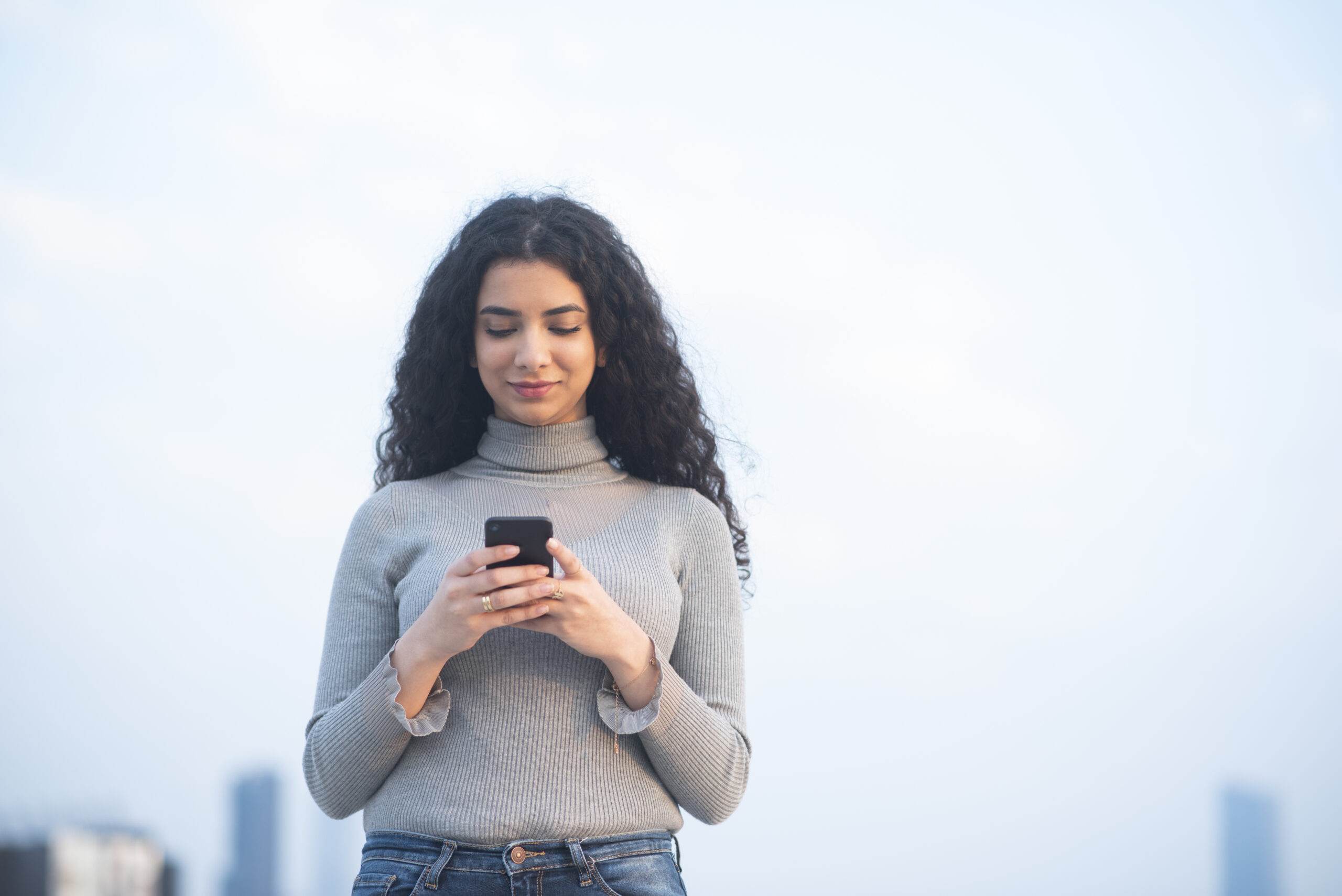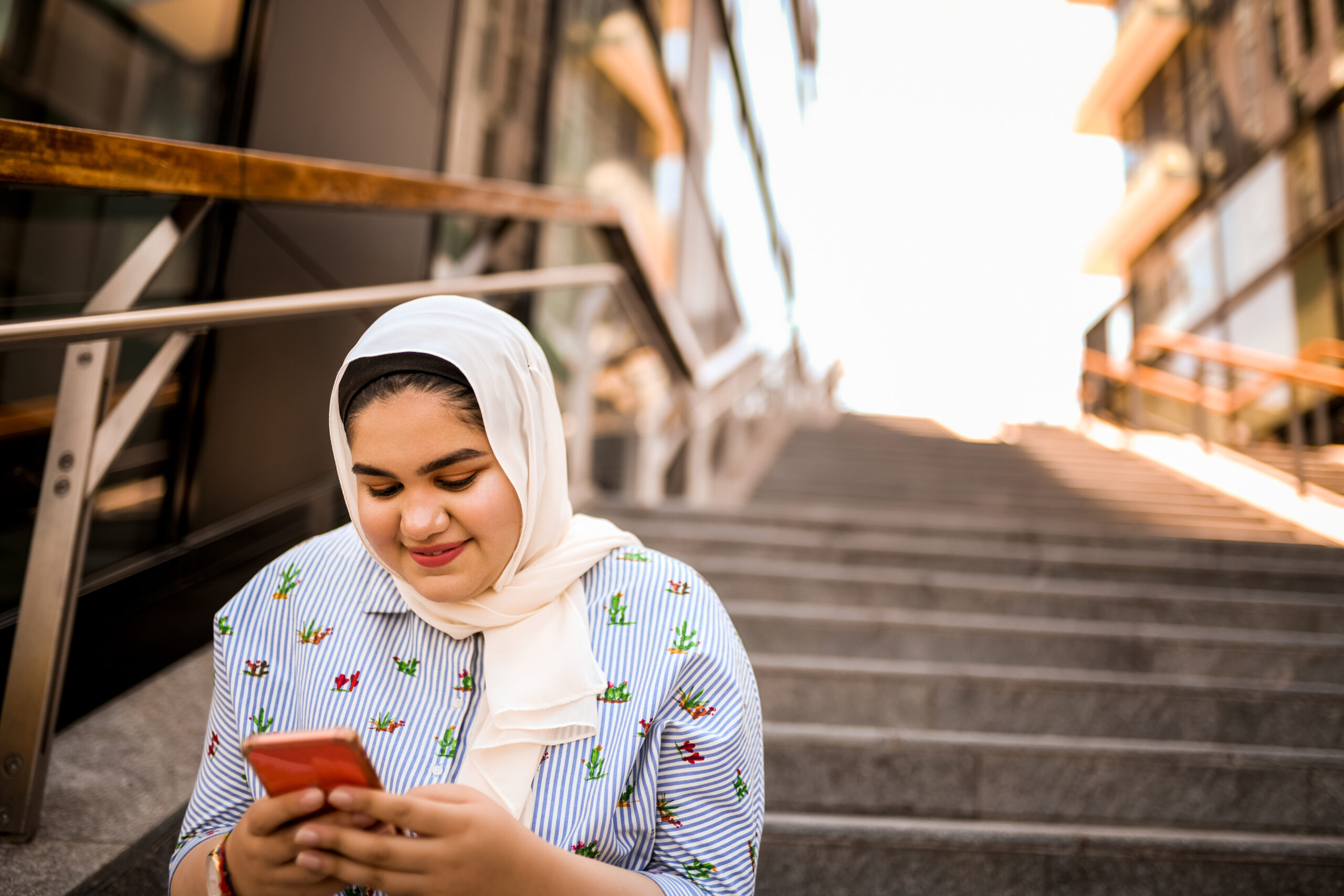Lesson 3: Online Presence
Before you start the lesson, make sure to read through the lesson overview and the lesson preparation. The Facilitator Guide can also help you prepare.
Lesson Overview
Students will be able to identify one type of personal information they can manage online, one form of information they can’t control online, and one thing they can do about some aspect of their personal information online not directly controlled by them.
Lesson Preparation
ESTIMATED TIME
ESSENTIAL QUESTION
- How much control do you have over the information about you online?
PREPARATION
- Students will need internet access for this lesson.
OPTIONAL: ISTE DIGCITCOMMIT COMPETENCY
- INCLUSIVE: I am open to hearing and respectfully recognizing multiple viewpoints and I engage with others online with respect and empathy.
- ALERT: I am aware of my online actions and how to be safe and create safe spaces for others online.
Online Profiles and Storytelling
TELL YOUR STUDENTS
The public information that is available about you online comes from many sources. You can control some of those sources, like the content you share (e.g., photos, videos, text-based posts) on your social media profiles.
Now think about your own social media profile(s).
ASK YOUR STUDENTS
- What is the story that people might take away from reading your profile?
- Who writes that story?
- How might you manage that information?
- What can you influence with respect to online content about you? What can’t you control?
TELL YOUR STUDENTS
Look at one of your personal social media profiles (Facebook, Instagram, Snapchat, Twitter, WeChat, etc.) or the social media profile of a public figure (e.g., someone in the music/film/TV industry, political figure, business leader). Pick several pieces of content (e.g., photos, videos, text-based posts) that are visible on the profile.
ASK YOUR STUDENTS
- Who created the posts? Why?
- What are some of the comments?
- Who was the target audience for each post?
- What information was left out?
ASSIGNMENT
Ask students to write a few paragraphs based on the posts they reviewed in the previous activity and answer the following questions:
- What is one type of content that you/the account owner DO/DOES primarily control?
- Suggested responses: Your username, status updates, posts/shares/tweets, the photos or videos you upload to your stories or moments, comments you make on the content other people share on social media.
- What is one type of content that you/the account owner DO/DOES NOT primarily control?
- Suggested responses: Comments other people make on the content you share on social media (e.g., your stories, moments, status updates, tweets), the content others share on social media, how friends/followers/those you are connected to share online content you have uploaded.
- What is one thing you can do about content that someone else has written about you that you do not like for some reason (i.e., this information is NOT in your direct control)?
- Suggested responses: Untag yourself; reach out to the person who shared the content and ask them to remove it; block the user; if you fear for your safety, tell a trusted adult; depending on the platform, you may be able to report the content and/or the user if it’s harassment or bullying.
Congrats!
You've finished the lesson
Source:
This content is hosted by Meta and currently includes learning resources drawn from Youth and Media at the Berkman Klein Center for Internet & Society at Harvard University under a Creative Commons Attribution-ShareAlike 4.0 International license. You can make use of them, including copying and preparing derivative works, whether commercial or non-commercial, so long as you attribute Youth and Media as the original source and follow the other terms of the license, sharing any further works under the same terms.



 Previous Lesson
Previous Lesson 




